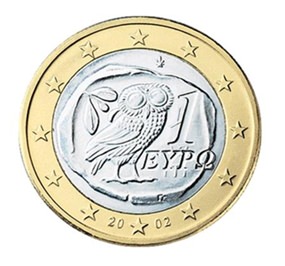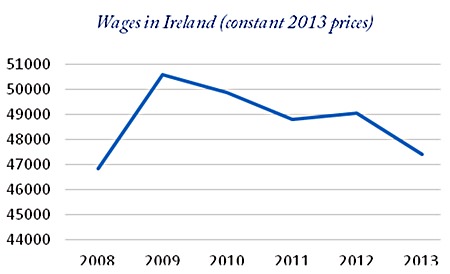You see, there was one tiny flaw in the plan […]. It was b*******s.
– Captain Edmund Blackadder1
Post-World War II, there was a determination that the horrors that had covered much of the planet from 1939-45, and which had substantially emanated from rivalries among the European powers, must never be witnessed again.
Germany was given aid to rebuild, in contrast to the aftermath of World War I, and a great deal of focus was turned to how to enable cross-border trade rather than troop invasions. Bilateral agreements within specific sectors gradually led to the advent of a European Union that supported and helped to harmonize trade and capital flows. The Union expanded to cover much of the continent plus Great Britain, Ireland and even the islands of Malta and Cyprus. In a sense, this was a very logical reaction to all that had gone before – the hope was that trade regulation could also create political harmony, obviating the need for neighbouring or proximate tribes to engage in military contests for prosperity. A trade federation showed that it was able to operate in the interests of and for the benefit of most of its members – it succeeded in finding common ground. The danger was that this wasn’t enough for everyone – especially those with grand political visions who envisaged a politically harmonious broader federal union.
 Image: Public Domain.
Image: Public Domain.
As tends to be the way, the bigger questions were never really asked in a way that people could make binding decisions about them. Instead they were tested via various proxies that had the effect of creeping very slightly – just like Field Marshal Haig’s drinks cabinet in another of Captain Blackadder’s memorable quotations – “yet another gargantuan effort to move [it] six inches closer to Berlin.”2
The ultimate proxy was the introduction of the single currency – although this was no bolt from the blue having been preceded by the fixed exchange rate mechanism, the EMU and the pre-Euro prototype, the ECU. One reason why the name was changed was apparently that “ein ECU” in German sounds too much like saying eine Kuh (a cow) which wouldn’t have been sufficiently dignified or important sounding. I’ve previously written about why I think Euro was a badly-chosen name for a doomed project and why I think Disney Dollars would have been more appropriate.3
The Euro was, however, one step much too far. The warning signs were evident, not only in the inability of Pound Sterling to defeat George Soros’s determination to highlight the flaws in the EMU, but also the inability of just about every Euro member state to actually achieve the impossible, artificial standards required to join the currency. It would have been best for all if the single currency had died its death at either of these times; yet for completely non-economic reasons it was kept alive and revived.
The problem in any currency union of unequal participants is that the inequality that would normally manifest itself – through exchange rate adjustments – has to manifest itself, often subversively and poisonously, elsewhere.
The less competitive PIIGS economies were tied to the same foreign exchange rate as the D-Mark Bloc (DMB). Hence Greece and Portugal had to try to compete on a level playing field with Germany and the Netherlands. This created a deficit in many of the weaker countries and a surplus in the stronger ones. Initially these cracks were papered over by the stronger economies recycling their surpluses as loans or investments back into the weaker ones. This symbiosis gave the impression of economic harmony, until the wheels fell off spectacularly following the Global Financial Crisis.
It transpired that Ireland’s banking sector had created a gargantuan property bubble by recycling available surpluses from the giant German banking sector into the previously tiny but now bloated Irish banks. With the banks unable to repay, Ireland’s government stupidly/feebly/was bullied into (delete as appropriate) accepting responsibility for Irish banks’ debts so that the primarily German creditor banks could and would be repaid. However, Ireland remained within the Euro. Luckily Ireland had a reasonably competitive economy relative to the EU average and, by squeezing the pips dry, austerity measures were able to transfer sufficient income and wealth from Irish businesses and people to repay the creditor banks (via the transfer mechanism of the Irish government) – even if the Celtic Tiger was well and truly buried (see chart 1).
 Source: OECD
Source: OECD
The decision of the stupid/feeble/bullied Irish government to destroy the income and wealth of its people and businesses to stay on the right side of, mainly German, banks was understandably unpopular. A new government under the bright-eyed and perfectly coiffed Enda Kenny replaced it, promising to renegotiate the debt. Although they hadn’t pledged to do so, many hoped this meant repudiating the so-called bail-out and exiting the straitjacket of the single currency. They were to be disappointed – extremely disappointed. So disappointed in fact that Kenny’s government is now widely thought of as no better than its catastrophic predecessor4. Faced by threats of what the EU/ECB could and would do to Ireland, Kenny showed the same resourcefulness as Jack (of Beanstalk fame), who sold the family’s only asset for a handful of beans. Luckily for Jack, his were magic. Sadly for Enda, his were not.
No longer funded by the massive recycled surplus, a struggling economy had no way to disguise the shortenings that were now highlighted of competing on a level currency playing field with more powerful neighbours and so it had to resort to cutting spending and domestic investment. Businesses failed, unemployment soared, wages (in real terms) dropped by 6.3% between 2009 and 2013.5
When that inevitably caused Ireland’s GDP to collapse, reducing the quantum of national income produced, further cuts, asset sales, and failures became necessary to pay the bills once more.
Faced with such challenges in the past, Ireland might have repudiated/renegotiated its debts in a meaningful way and devalued its currency down to a level of competitiveness. This was the same trick pulled off by ASEAN economies after the 1997 Asian Financial Crisis, where escape from an overvalued currency peg created a competitive devaluation that has enabled Thailand to run a trade and current account deficit almost continuously since then. The intervention of the IMF prevented Thailand from defaulting on its debts, so the ASEAN challenge was in many ways much tougher.
However, Ireland (followed by other Eurozone bailout nations) stuck grimly to the task of inflicting slow motion national economic suicide through a thousand cuts.6 This story is now back in the spotlight again because the Greek people are tired of being starved and hopeless and they recently elected a Syriza-dominated government led by Alexis Tspiras on a mandate of change.
What worries me is just how much, or rather how little, change they will achieve. Renegotiating (Enda-style) or even properly repudiating the debt will do little by itself to help Greece. If Greece remains in the Euro, which now means also complying with the fiscal compact, and the obligations therein to run a current account surplus that can only be achieved by further destruction of the Greek economy, then nothing will have changed. Even if all external Greek sovereign debt were to be written off, which it wouldn’t be, a Greece tied to the Euro and obligated to run a surplus is an economic tragedy for future generations to endure.
To see any sustainable growth in the Greek economy, it first needs to exit the Euro – preferably in an orderly way. Optimists tell me that they believe such negotiations are underway, behind the scenes. For Greece’s sake I hope so. I also hope that the remaining PIIGS countries follow. However, this implies a catastrophe for the DMB. That is now the choice facing the Eurozone – not whether it will implode but when and where the implosion will take place.
Either way the impact will be globally devastating – but if you’re Alexis Tsipras right now, you should be mainly concerned with ending Greek suffering.
Footnotes:
1 Blackadder Goes Forth, BBC (1989)
2 idem
3 Financial Chernobyl in Euro zone will hit Asia
http://m.bangkokpost.com/business/304129
4 http://www.forbes.com/sites/karlwhelan/2012/
10/07/the-celtic-comeback-dont-believe-the-hype/
5 OECD
6 http://www.theguardian .com/world/2013/oct/
15/ireland-more-budget-cuts-despite-recovery
| Please Note: While every effort has been made to ensure that the information contained herein is correct, MBMG Group cannot be held responsible for any errors that may occur. The views of the contributors may not necessarily reflect the house view of MBMG Group. Views and opinions expressed herein may change with market conditions and should not be used in isolation. MBMG Group is an advisory firm that assists expatriates and locals within the South East Asia Region with services ranging from Investment Advisory, Personal Advisory, Tax Advisory, Corporate Advisory, Insurance Services, Accounting & Auditing Services, Legal Services, Estate Planning and Property Solutions. For more information: Tel: +66 2665 2536; e-mail: [email protected]; Linkedin: MBMG Group; Twitter: @MBMGIntl; Facebook: /MBMGGroup |




